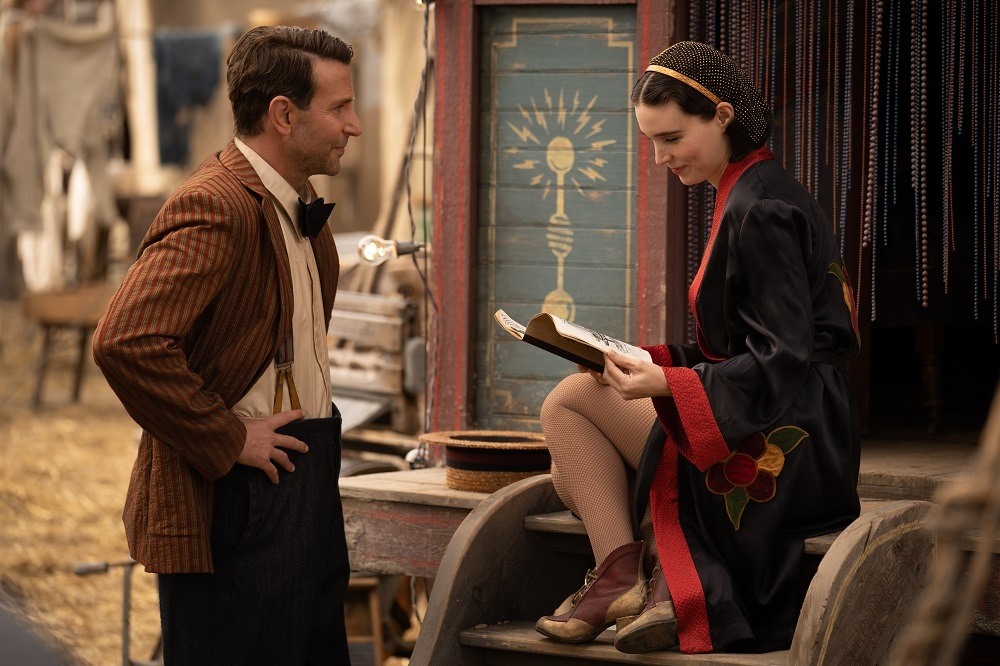Nightmare Alley

Bradley Cooper and Rooney Mara star in NIGHTMARE ALLEY. (Photo: Searchlight Pictures)
After decades of dabbling in the macabre and the supernatural, Mexican filmmaker Guillermo del Toro shifts gears in Nightmare Alley — opting for a story more grounded in reality, even if its characters engage in plentiful misdirection and make-believe.
Del Toro (The Shape of Water) showcases his versatility while still incorporating his gift for striking visuals into this remake of a 1947 film noir that doubles as an offbeat redemption story.
Bolstered by a stylish and atmospheric re-creation of the Depression-era backdrop, this compelling period drama maintains an ominous and unsettling vibe beyond the eccentricities of any story set in a world of schemers and swindlers.
The film opens backstage at a ragtag traveling carnival run by a crusty barker (Willem Dafoe) who hires a drifter named Stanton (Bradley Cooper) as a helping hand. Before long, the newcomer rises among the ranks, endearing himself to a clairvoyant (Toni Collette), an alcoholic card magician (David Strathairn), a strongman (Ron Perlman), and another fellow performer (Rooney Mara) who becomes a love interest.
Stanton’s initially soft-spoken and unassuming nature masks a troubled past, the details of which are gradually revealed. But he also conceals some trade secrets, along with an uncanny ability to prey upon the grieving and vulnerable.
Is he a huckster or a showman? That’s open for interpretation. Yet when he meets his match, he views it as a challenge. Such is the case with an alluring psychoanalyst (Cate Blanchett) who engages in Stanton’s mental games while providing a lucrative opportunity. “I’ll know when you’re lying,” she explains.
Cooper mixes charm and smarm as the antihero played by Tyrone Power in the original film, providing a window into this mildly endearing collection of sad-sack outcasts and greedy grifters who compromise their morals under desperate circumstances.
Indeed, socioeconomic despair lingers beneath the surface, accentuated by del Toro’s bathing almost every frame in shadows and smoke, both literally and figuratively.
The deliberately paced screenplay by del Toro and his wife, Kim Morgan — based on a novel by William Lindsay Gresham — suffers from uneven narrative momentum and struggles to develop deeper emotional resonance.
Even if never establishes a clear-cut rooting interest, Nightmare Alley steadily builds a sense of mystery toward a fascinating finale that shows both Stanton, and del Toro, have some new tricks.
Rated R, 139 minutes.